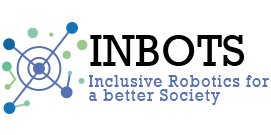
Yolanda Sánchez Urán and Amparo Grau, members of the Universidad Complutense de Madrid (leader of WP2 which will be responsible for creating the White Paper on the Regulation of Interactive Robotics in the Union) attended to the event hold on April 24th at the Ilustre Colegio de Abogados de Madrid, Spain, to talk at the Section of Robotics, Artificial Intelligence, Virtual and Augmented Reality presided over by Santiago Mediano.
During this session, Yolanda Sánchez-Urán said that the debate must be held in the short term, “forgetting issues such as the electronic personality of the robot, the important thing is to ask what we lawyers can contribute in the current period of transition in which we find ourselves, since society needs a response from the legal world”. With regard to its impact on the world of work, the professor pointed out that the subject of labour law will continue to be the human being “who can never be a robot, who has little or a lot of artificial intelligence, because he lacks the key element of voluntarism that prevents him from being the subject of rights and obligations”, but “another thing is that he can be given a certain employment status”, she declared.
On the other hand, Amparo Grau, in charge of the legal, ethical and socio-economic aspects of the White Paper, recalled that the lack of legal personality (in the case of robots) does not prevent the existence of a tax obligation, and therefore, given the forecasts of the impact on the labour market, “the tax system will have to help the mobility and training of workers through tax incentives”. According to the researcher, “there is a long way to go and we have to be prepared.

